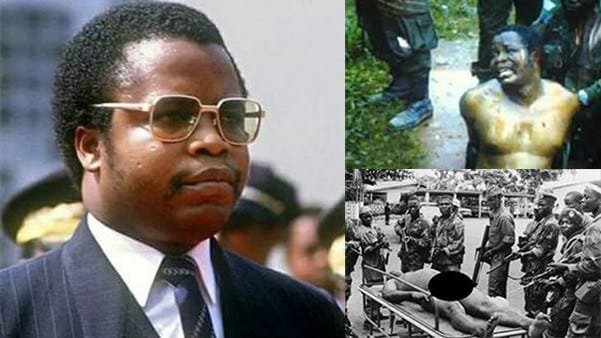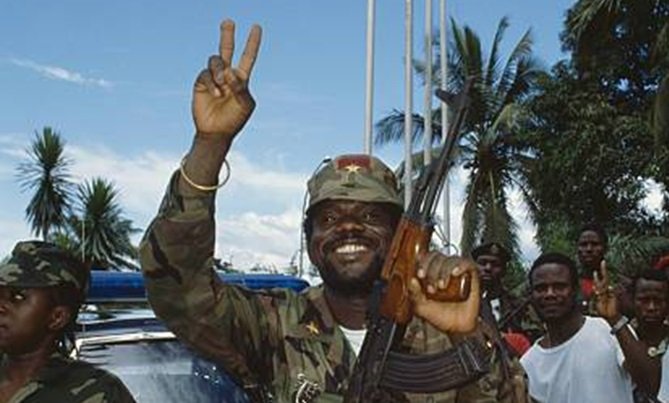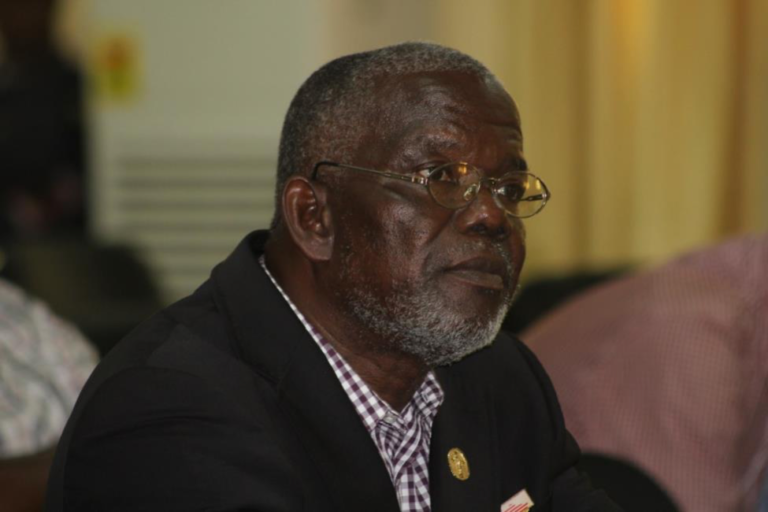Monrovia, Liberia – Prince Yormie Johnson, a former rebel leader turned senator and one of Liberia’s most polarizing political figures, passed away on December 1, 2024, at the age of 72. Johnson reportedly succumbed to complications from a stroke in Monrovia, where he had been hospitalized for weeks. His death marks the end of a turbulent life marked by warfare, political reinvention, and contributions to education in post-conflict Liberia.
According to family sources, Johnson had been battling health issues in recent years. He was rushed to the John F. Kennedy Medical Center in Monrovia after suffering a stroke, but despite medical intervention, he passed away surrounded by family and close confidants. The announcement of his death has sparked mixed reactions from Liberians and the international community, given the controversial nature of his past and his role in shaping Liberia’s modern history. Johnson rose to notoriety during the Liberian Civil War, a conflict that ravaged the nation between 1989 and 2003. Born in Nimba County, Johnson joined the Liberian Armed Forces in the 1970s and later aligned himself with the National Patriotic Front of Liberia (NPFL) under Charles Taylor at the outset of the civil war. However, Johnson broke away from Taylor to form the Independent National Patriotic Front of Liberia (INPFL) in 1990, a faction known for its brutal tactics.
The Capture and Killing of Samuel Doe

One of Johnson’s most infamous moments came in September 1990, when his INPFL forces captured President Samuel Doe, marking a turning point in the civil war. In widely circulated footage, Johnson was seen presiding over the torture and execution of Doe, an act that shocked the world and underscored the ferocity of Liberia’s civil conflict. Johnson justified the killing as a means to end Doe’s authoritarian rule but faced widespread condemnation for the manner in which it was carried out.
The episode cemented Johnson’s reputation as a ruthless figure but also propelled him into the limelight, making him a central player in the war’s chaotic power dynamics.
Exile and Return
As the civil war escalated and Liberia descended further into chaos, Johnson fled the country in 1992, seeking refuge in Nigeria. He lived in exile for nearly a decade, during which time he reportedly converted to Christianity and adopted a more conciliatory public persona. Johnson’s return to Liberia in 2004, following the end of the civil war, marked the beginning of his transition from a warlord to a statesman.
In 2005, Johnson ran for the Senate and won a seat representing Nimba County, one of Liberia’s most populous regions. His election reflected his enduring popularity in his home region, where many viewed him as a defender of their interests during the civil war.
As a senator, Johnson sought to distance himself from his violent past by focusing on development, education, and reconciliation. He became an advocate for investments in Liberia’s educational sector, emphasizing the importance of rebuilding the nation’s human capital after years of conflict. Johnson’s flagship achievement in this area was the establishment of the Prince Johnson University, a private institution aimed at providing higher education opportunities to Liberians in underserved regions.

The university, located in Ganta, Nimba County, offered programs in engineering, business administration, and agriculture, among others. Johnson frequently touted the institution as a symbol of his commitment to Liberia’s future, arguing that education was the cornerstone of sustainable development.
Despite these efforts, Johnson’s tenure in the Senate was not without controversy. He faced criticism for alleged corruption and was accused of using his influence to protect former warlords from prosecution. His role in the Senate also highlighted the complexities of post-war Liberia, where figures with violent pasts often held positions of power in the name of reconciliation.
Johnson’s Legacy
Prince Johnson’s legacy is one of stark contrasts. On the one hand, he is remembered as a brutal warlord whose actions during the civil war contributed to Liberia’s suffering. His role in the capture and killing of Samuel Doe remains a particularly dark chapter in the nation’s history, with many calling for greater accountability for war crimes committed during the conflict.
On the other hand, Johnson’s contributions to Liberia’s educational sector and his efforts to promote peace and reconciliation cannot be overlooked. His work as a senator, particularly in championing education, resonated with many Liberians who saw in him a figure capable of transformation.
Reactions to His Death
Reactions to Johnson’s death have been as polarized as his life. Supporters in Nimba County mourned the loss of a leader they considered a hero and champion of their region’s development. “Prince Johnson was a man of the people,” said Emmanuel Torkon, a resident of Ganta. “He fought for Nimba when no one else would, and he gave us a university to educate our children.”
Critics, however, have been less charitable. “Prince Johnson’s death does not absolve him of the atrocities he committed,” said Jerome Kpadeh, a human rights activist in Monrovia. “His victims deserve justice, and Liberia must reckon with its past if we are to build a peaceful future.”
International observers also weighed in, with some noting that Johnson’s death highlights the unfinished business of transitional justice in Liberia. The Truth and Reconciliation Commission (TRC) of Liberia had recommended prosecution for Johnson and other warlords, but these recommendations were never implemented, reflecting the challenges of balancing justice and stability in a post-conflict society.

Prince Johnson’s life and death encapsulate the complexities of Liberia’s history and its ongoing struggle to reconcile with its past. His story is a reminder of the enduring scars of the civil war and the difficult path toward national healing. As Liberia reflects on his legacy, the nation must grapple with questions of justice, accountability, and the kind of leadership it needs to secure a peaceful and prosperous future.
Johnson’s burial is expected to take place in Nimba County, with tributes planned by both his family and supporters. Whether hailed as a hero or condemned as a warlord, Prince Yumi Johnson’s impact on Liberia is undeniable, leaving a legacy that will be debated for generations to come.

